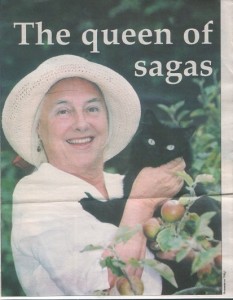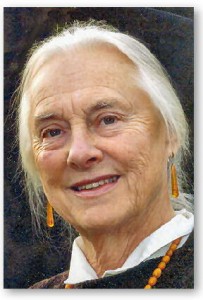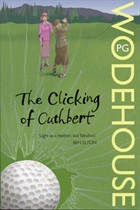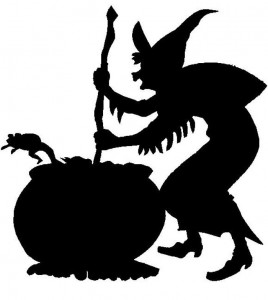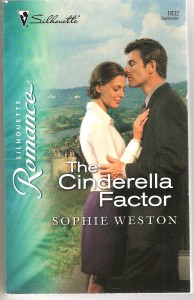Archive for the ‘Writing’ Category
GUEST POST Beryl Kingston
Welcome to the first guest I have hosted on my blog, distinguished novelist Beryl Kingston, whose Easter Empire trilogy (inspired by the fact that a woman founded WH Smith) was a favourite, long before I met her, let alone enjoyed the privilege of her friendship.
Like me, she has been tagged to contribute to the Writing Process blog roll, in her case by lovely Mary Stewart-inspired author, Jan Jones. Over to Beryl
My Writing Process
What am I working on?
This is going to sound like showing off but at the moment, after three and a half years when I couldn’t write at all, I’m polishing off a collection of poems, a play about William Blake’s trial and a novella about a conceited cat, all of which are taking me in different directions.
How do my stories differ from others in my genre?
I suppose the honest answer is that I don’t know. My first agent, the renowned Darley Anderson wanted me to be classed as ‘a romantic writer’. I never thought I was.
Why do I write?
I started writing when I was seven because I knew I wasn’t allowed to tell anybody about what was happening to me and I had to tell someone so I wrote it all down in a diary, which was private. Now it is because I enjoy it and there are always tales to tell.
How does my writing process work?
I used to assume that my writing method was more or less what other writers did, if I thought about it at all, but then I got to know other writers and discovered I was odd. There is a pattern to it though and a method, of sorts, and it works for me.
I spend about three months getting to know my main characters, what they think and why, how they talk to a variety of people, what and who have made them what they are. I do it until I can live in their skin. It’s rather like method acting. At the same time I visit the settings for my story. (I used to love doing that when Roy was alive. It was like a holiday.) I try to find a different setting for each new book and make several visits in the course of a year so as to see the place in all four seasons and different kinds of weathers. I fill notebooks with as much detail as I can get. Then when I’m living under the skin of my protagonists, and the plot has begun to form out of all the things that are going to happen to them, I start to write.
I don’t begin at the beginning of the book and plough on doggedly until ‘The End’. I’m much too self-indulgent for that. I start with the scene that’s singing to me most strongly. In my first book it was the moment my hero sees the woman he’s going to marry, in another it was the Battle of Trafalgar, in another it was when my heroine meets up with anti-road protesters and sees her first demonstration. Then I move on to other scenes I fancy. When I’ve got what I call a run, a series of scenes that ought to run in sequence, I stitch them together. It’s rather like making a patchwork quilt and it’s a very useful part of the process because, if I’m reading something and it’s boring me because I want to get on to the next ‘good bit’, I simply cut it out, and if I see moments that have – or will have – ‘echoes’ I can work on them too. Eventually so many runs are stitched together that I have a book. It’s a very satisfactory way to write – at least for me – although it does look a muddle.
Edit Write Tiffle
Thank you to lovely writer Christina Hollis for inviting me to join the My Writing Process Blog hop. It comes at an excellent time for me, as I am just considering how to edit the first draft of the longest novel I have every written. (About 5 Mills & Boons in wordage.) So it has concentrated the mind wonderfully.
Currently I’m writing a story set in 1938 when nobody knew there was going to be a war, though lots of people suspected it and tried to work out what they would do if it came. There is a love story – a big one, with problems of integrity, class and sexual morality all mixed in – but the theme, I suppose, is conflict of loyalties. In the end everyone has to work out his or her own solution. We are all answerable to our own consciences, when the lights are out.
My writing process is best described as close your eyes and jump. That’s what happened when I started this book. As a result, I went in a number of wrong directions. When I was writing 55,000 word category romance, with one story, two major characters and a guaranteed happy ending, this was not an issue. Now, with a multi-character world and at least four story lines, I have to keep my eye on the landing zone. Basically I think it is going to work like this:
• Write – tick
• Read – tick
• Edit
• Write the missing stuff
• Tiffle – more politely known as polishing.
Edit
Done in pen or pencil plus highlighter pens on printed ms, with accompanying notes in a bound notebook. Loose sheets get lost. I have proved this.
1 NOTE incidents/reflections/dialogue that I need to insert to make sense of later developments. Note both where insertion is needed and where it is picked up later. NB Use reference points that Word Search will find. I am now about to kick hell out of Draft 1’s pagination.
2 UNDERLINE, sideline, highlight stuff I need to take out because it doesn’t make sense in this story.
3 CIRCLE stuff where I go on too long, repeat myself
4 QUESTION MARK anything that strikes me as odd, either because of consistency, plot, character or historical fact.
5 BRACKET anything which could be better expressed. Remember less is more.
6 THEN CUT 2) and 3). This is very satisfying! Keep outtakes for future use. Also, some editor further down the line may want them back in.
7 CONSIDER QUESTION MARKS I find this takes me back into the creative process.
8 SAVE ms as Draft 2
Write
I now know the new material that needs to go into my story (1 above), plus the issues that I need to resolve (7) and any Notes To Self that I make as I go along, especially as I approach the end. They are a focussing mechanism, not a shopping list, Essentially I am now back in the writing zone again. From now on I need to fly, not plod.
The main difficulty here, I’ve found, is seamless joining. What works best for me is to find out where the new piece has to go in and then go back and cut the preceding paragraph (or more). This gives me room to get into the writing voice I had when I first wrote that chapter. . If I read the preceding paragraph aloud and then keep speaking as I write on, it starts to feel like the spontaneous flow it should do, and not just a patch and push job.
The difference between the two
Editing is like a builder tidying up his brickwork, chopping off excess putty, filling the odd small hole. Re-writing is like removing a damaged brick and replacing it – you have to make room for it, then smoothe the joins so they don’t show.
Tiffle
This is where I deal with 5). It’s the beauty treatment – clarify, tighten, exfoliate, buff.
Word of warning here: this can go too far. From my past:
ED You said the book was nearly finished. Why isn’t it on my desk?
ME I’m just giving it a last tidy ….
ED (howls) Stop tiffling.
Tiffling is where you can go through your book and replace one word or phrase with another because you like it better. This may be good if you a) know why and it’s a good reason and b) you’re consistent. If you replace ‘silk’ with ‘satin’ and then next day change it back, you’re in a bad way.
Conclusion
That’s the theory anyway. But it’s a BIG book and I have miles to go before I sleep. So I’d be very grateful for suggestions.
Recent contributors to My Writing Process Blog Hop
Christina Hollis Bee-keeper and best selling author of historical fiction and M&B Modern Romance/Harlequin Presents christinahollis.blogspot.co.uk
Jean Bull has loved books all her life. She has worked in everything from teaching to the hotel industry and lived all over the UK, which has inspired her writing. jeanbullswritingblog.blogspot.co.uk/
Margaret Mayo author of scores of successful category romances for Harlequin Mills & Boon margaret-mayo.com/blog/
Cara Cooper writes short stories for women’s magazines, and novellas for People’s Friend, My Weekly and Ulverscroft. caracoopers.blogspot.co.uk
Women’s Fiction Festival 2013
Last week I was in Matera, Italy (a UNESCO World Heritage Site of which more in another post) at the 10th International Conference on Women’s Fiction. It was amazing.
The Conference, which is part of a Festival celebrating women’s fiction, is the brainchild of translator/award-winning author Elizabeth Jennings, who lives in Matera, and editor/publisher/agent Maria Paola Romeo from Milan. And oh boy, was it international. There were authors from the USA, Italy, the UK, Australia, South Africa. There was simultaneous translation between Italian and English. There were writers, agents and publishers from the USA, Italy, the UK, France and Germany.
Most of the Conference was conducted in the form of panels, so we got a range of views and experience. It all felt very spontaneous and, as a result, startlingly honest. It must have been a real pain for the translators, though; they worked their socks off and with minimal prepared content. I take my hat off to them, especially as they donated their services free. That’s dedication to books!
Two issues emerged and stayed at the forefront for the whole conference: the hybrid author and ‘discoverability’. Hotly followed by the implication that authors now have to be serious business people. No living in a cottage, like Elizabeth Goudge, God bless her, and letting Other People sort out contracts, money and the practicalities of life. Good for the backbone of course, but more or less daunting for the author, depending on your habits of mind.
The Pillars of Wisdom or at least Commercial Fiction
Elizabeth Jennings, chairing the first panel, said that three years ago there were three pillars of the publishing world: Writer-Agent-Publisher. Stephane Marsan, founder of French publisher Bragelonne, later added a fourth: Bookseller. It was only very late in the conference that someone else (sorry, forget who) mentioned, in passing, the Reader. The European voices tended to agree that readers were diminishing in number, though I’m not sure whether that was just of print books. Everyone pointed out that, although e-readers were growing increasingly popular, once a book or short story was available digitally it could be read on other devices, such as laptops, tablets and even smartphones. The next generation of readers may find these a better fit with their daily lives, I suppose.
The hybrid author
One man in his time plays many parts … In the case of writers, in the new digital age you may find that you want to self-publish your first venture(s), but also contract with a small press for something that has a definite audience but you can’t quantify it; digital first(small or large publisher) for an experiment; and, maybe, a big mainstream publisher for your mega-reach books. And you may want them all at the same time. Publishing, as everyone said, is changing. Fast.
Digital publishing seems now to be driving the new commercial fiction market in the USA. The consensus was that Europe is two to three years behind but going in the same direction.
Discoverability
The upsurge of digital publishing has inevitably caused a traffic jam, to put it at its mildest. With all those books out there, how does the Reader find the book he/she actually wants to read? He/she can still browse, in real bookshops and the on-line stores, both of whom will deliver recommendations. The Amazon rankings increase an author’s visibility — but you have to take care to select carefully the categories in which you place your novel and also choose your time window carefully (there you go, author-businessperson again). The self-publisher will probably only get a visible place in the rankings for a short time.
However, the latter is true for all publishers, big, small and self. Crowding out has hit the book world big time. You may get a contract with a big publisher but they haven’t cracked this problem, any more than has Euphemia Gutbucket, publishing Forty Years in the Rain Forest, my life as rubber planter’s wife.
Community
And this is where I pay tribute to the big thing I took away from Matera – the willingness of everyone there to help each other out. From Elizabeth herself, devoting what must be massive writing time to putting together this programme, to the agents, publishers, translators and other authors, I was humbled by the generosity of everyone, all cheerfully sharing the problems they had identified and some of the solutions they were trying. In particular I am grateful to fellow participants David Gaughran, who convinced me that it was possible to let people know about your books without having a personality transplant and Shannon Mckenna, who hit the New York Times bestseller list on the Friday of the Conference. That achievement reminded everyone that there are Readers out there and sometimes they just love your book. Phew!
In Praise of Moi?
Big muttering started on the Net after the Harrogate Crime Writing Festival, six weeks or so ago. Stephen Leather, best selling thriller writer, sat on a panel discussing e-books and said, as reported by The Daily Telegraph, ‘that he uses pseudonymous accounts in online discussion forums to create a “buzz” about his work’. (They’re called sock puppets, apparently.) It didn’t go down well with his audience. Some of them dug around the Internet for evidence and found that the practice was nastier than simply lauding his own work — and, it now emerges, more widespread than you would expect, too.
It has unsettled me horribly. These are fellow authors, you understand. This is my team. I didn’t think we did things like that.
I’m not well placed to make a judgement as to whether this is just the brutalist school of marketing or sufficiently misleading to be illegal – and, if the latter, who would be guilty of the criminal offence: the disguised author for perpetrating? Amazon for publishing? Could there be a class action by deceived readers? As someone who takes no notice of stars and hardly ever reads Amazon reviews (even of my own books, though that’s probably cowardice) I can’t really claim to have been materially misled pre-purchase.
So why does it nag away at me? After a great deal of restless arguing with myself, I think there are four reasons:
1 Partly it’s the recoil from turning over a sun-warmed stone and finding maggots underneath. Now, some of my best friends are authors. I know that even the nicest of us have a touch of darkness. We can be savage when we’re writing and it isn’t going well. And completely indifferent to the world, the flesh and the devil — not to mention our nearest and dearest — when the writing is on a roll. But setting up a bunch of masks and playing different parts, sometimes even talking to another of our own masks – that’s just creepy. Especially when you think of the sheer time it must take.
2 Sympathetic embarrassment. OK, I have a low embarrassment threshold, but for me this is just anguish. I feel for these guys standing naked and shivering in the spotlight of the Internet and I wish with all my heart that they hadn’t done it and they weren’t.
3 Much more important, though, trashing other writers makes me wince and want to run away and hide. But it also bewilders me. I mean why? Surely not out of rivalry? As Katie Fforde always says, people read more than one book. Because they read hers doesn’t mean they aren’t going to read mine too, if they like my sort of thing. Out of spite? That’s more than creepy, that’s sinister, up there with stalking and writing poison pen letters. You imagine strange loners without much in the way of a social or inner life getting their jollies out of it, not people with imagination. Especially not successful people with imagination.
4 Alien alert. Short of Miss Piggy, which author can honestly stand up and say their book is the bees’ knees, knocks everyone else into a cocked hat and is an absolute Must Read for the World? I can tell you which of my books I’m fondest of and possibly why – but I know a load of faults in each and every one and probably there are a whole raft more than I haven’t thought of yet. Getting the damned thing published has never turned off my inner editor, nor should it. These writers have Gone To The Bad. It has to be all the fault of the Internet, temptingly anonymous with the reach of an Asian Flu Virus. Hasn’t it?
But then I remembered The Guru. Specifically, The Clicking of Cuthbert. PGW had seen this madness and set it down in its finest flower. I have set out the relevant bits below. The Vainglorious Author (a rising modern novelist from Russia) is attending a literary soiree rather than a full blown Harrogate festival but otherwise the parallel holds, I feel.
Vladimir Brusiloff’s mouth opened, as he prepared to speak. He was not a man who prattled readily, especially in a foreign tongue. He gave the impression that each word was excavated from his interior by some up-to-date process of mining. He glared bleakly at Mr. Devine, and allowed three words to drop out of him.
“Sovietski no good!”
He paused for a moment, set the machinery working again, and delivered five more at the pithead.
“I spit me of Sovietski!”
Raymond Parsloe Devine was plainly shaken, but he made an adroit attempt to recover his lost prestige.
“When I say I have been influenced by Sovietski, I mean, of course, that I was once under his spell. A young writer commits many follies. I have long since passed through that phase. The false glamour of Sovietski has ceased to dazzle me. I now belong whole-heartedly to the school of Nastikoff.”
“Nastikoff no good,” said Vladimir Brusiloff, coldly. He paused, listening to the machinery.
“Nastikoff worse than Sovietski.”
He paused again.
“I spit me of Nastikoff!” he said.
Vladimir Brusiloff proceeded to sum up.
“No novelists any good except me. Sovietski–yah! Nastikoff–bah! I spit me of zem all. No novelists anywhere any good except me. P. G. Wodehouse and Tolstoi not bad. Not good, but not bad. No novelists any good except me.”
Well, it cheered me up a bit. But at least Vladimir Brusiloff didn’t pretend to be Lamb Chop while he did it.
The Novel, the Witch and the Wardrobe
I was really grateful to Emma Lee Potter for the write-up on her blog of the panel of best selling novelists at last weekend’s Chipping Campden Literary Festival.But Fiona Walker’s advice made me wince: “Finish it. There are so many half-finished novels languishing in drawers.”.
Guilty, Guilty, So Guilty.
I have been asking myself what happened to relegate those poor stories to the drawer. Or in my case, the box file at the top of the wardrobe. Did I run out of steam? Drive myself down a blind alley and fail to find a way out? Realise they were crap and run away? Or did some bad fairy at my Christening give me what my friend Mary Jo calls the Tiffle Virus, so that I can never actually bring myself to stop tweaking, finish and say goodbye?
Well, the answer is, all of the above. But quite often the latter. Although sometimes I think she was not so much a bad fairy as an older sisterly sort of witch lurking somewhere in my subconscious who, after lobbing in eye of newt and other succulents, says, “Still a bit watery; needs something else; leave it and see if it comes to you.”
My only excuse is that, often, the witch is not wrong. When I push my way into the Wardrobe, I can see that she was absolutely right about my Knight of Ghosts and Shadows, a woman-in-jeopardy story with a hole in the plot you could drive a London bus through.
Or Someone Else’s Business which was about three books in one. Worse, the heroine fancied the wrong man and wouldn’t stop, no matter what I did. “‘You’ll have to kill him,” said my friend Annie, best seller, dearest friend, severest critic and all round bootfaced sadist when it comes to her own characters. But by then I was in love with him too and I couldn’t bring myself to do it.
BUT
… for at least some of these Wardrobe-bound stories, their time will come. If you’re a writer, never forget that.
A case in point – sometimes in the 90s I wrote a book for Harlequin Mills & Boon with a waif heroine. They turned it down, saying that waifs were out of favour. Presumably they were too kind to say that the story was only half cooked. Heroine fine. The hero had the charisma of a cornflake packet.
That’s what I discovered when, scrolling forward ten years, HMB were looking for a ms urgently to fill a slot. Only by then I had a new hero, a real hero, waiting in my imagination. Helped by some judicious prodding from fab editor Kate Paice, I wrote 25,000 new words in a week. And it worked. The Cinderella Factor is now one of my favourites.
So the moral I deduce is: Finish the Damn Book, fine. But don’t tear your hair out if it needs to rest a bit first. The same is true of the finest burgundy.
Just go Finish Another Damn Book in the meantime.
